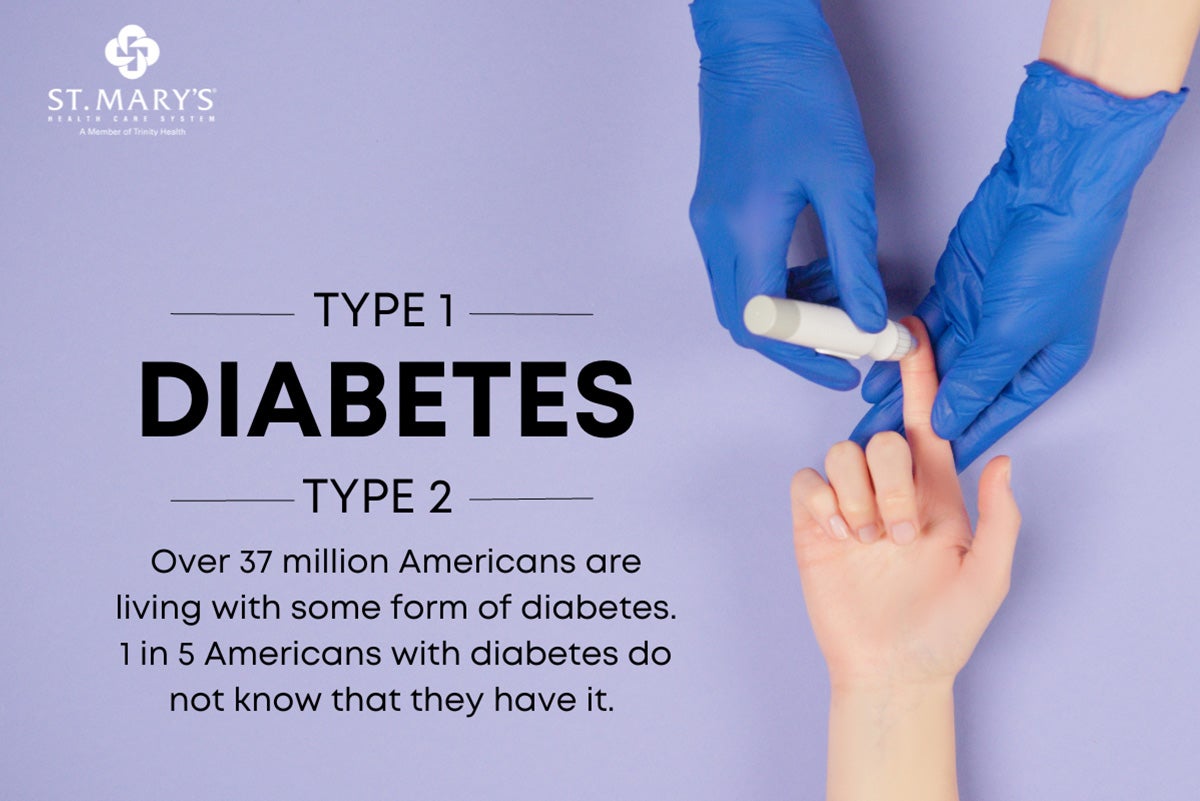What’s the Difference Between Type 1 and Type 2 Diabetes?
March 19, 2023Either way, controlling the condition is the key to quality of life.
What is Diabetes?
Diabetes is a chronic disease that occurs when the pancreas, an organ that creates the insulin your body needs for processing glucose (sugar), does not produce enough insulin or the body does not respond well to the insulin that's produced. Either way, you wind up with too much sugar in your blood, which can damage blood vessels and vital internal organs.
Is diabetes a big problem?
According to the CDC, more than 37 million Americans are living with some form of diabetes. This is about 1 in 10 Americans, but 1 in 5 Americans with diabetes do not know that they have it. This number is only increasing as 96 million Americans have prediabetes.
What happens in diabetes?
Insulin is a hormone that helps transport glucose from your blood into your cells. Without insulin, glucose cannot enter the cell and will stay in your bloodstream. Your cells use glucose for energy to perform daily tasks.
Glucose is fuel for your cells and comes from the food (carbohydrates) we eat and the beverages we drink. Carbohydrates convert into glucose and enter your bloodstream, while insulin ensures that the glucose then moves into the nearly 100 trillion cells in your body to power them efficiently.
If not controlled, diabetes can lead to hyperglycemia. This is also known as high blood glucose or blood sugar, which is exactly what the name suggests: an increased concentration of glucose in your bloodstream. Common symptoms of hyperglycemia include blurred vision, fatigue, thirst, frequent urination, and slow-healing infections or wounds. Hyperglycemia can lead to serious damage to many body systems.
Type 1 Diabetes
In type 1 diabetes, your body produces little or no insulin. This means cells cannot absorb as much glucose as they need from your bloodstream. Typically, this type of diabetes is diagnosed in childhood or in the teen years; however, it can still be found at any age. People with type 1 diabetes require insulin via injection or an insulin pump to keep their blood sugar at a steady level.
A common assumption is that type 1 diabetes is genetic. However, researchers do not know this for sure. Scientists are still searching for the cause of type 1 diabetes.
Effective management of type 1 diabetes is vital for good health and development. If uncontrolled, type 1 diabetes could lead to vision loss, kidney failure, heart disease, stroke, nerve damage in your limbs, wounds that won’t heal, and even death.
Type 2 Diabetes
In type 2 diabetes, your body does produce insulin, but your cells don't respond well to it. As a result, glucose has a harder time entering your cells to be used for energy. Instead, it builds up in your bloodstream.
Type 2 diabetes can develop from an unhealthy lifestyle, such as eating a high-carbohydrate diet, being overweight or obese, and not getting enough physical activity. Because the development of type 2 diabetes is often affected by lifestyle, it is typically diagnosed in adults over 45 rather than in children. Other risk factors include heredity, stress, hypertension (high blood pressure), and high cholesterol.
If untreated, type 2 diabetes can damage the body just like type 1 can. Heart disease, stroke, retinopathy leading to blindness, kidney disease, and amputations are all possible outcomes of uncontrolled type 2 diabetes. A more active lifestyle and improved diet are ways type 2 diabetes can be managed, but many patients also benefit from medications. and counseling from a certified diabetes educator.
How is diabetes diagnosed?
Diabetes is easy to diagnose using a simple blood test. Talk to your Primary Care Provider (PCP) to find out if you are at risk for diabetes.
St. Mary’s offers a wide range of diabetes services, from outpatient education to lifelong management under the care of an endocrinologist.

